The Raisina Dialogue DC
Washington DC | February 24, 2023
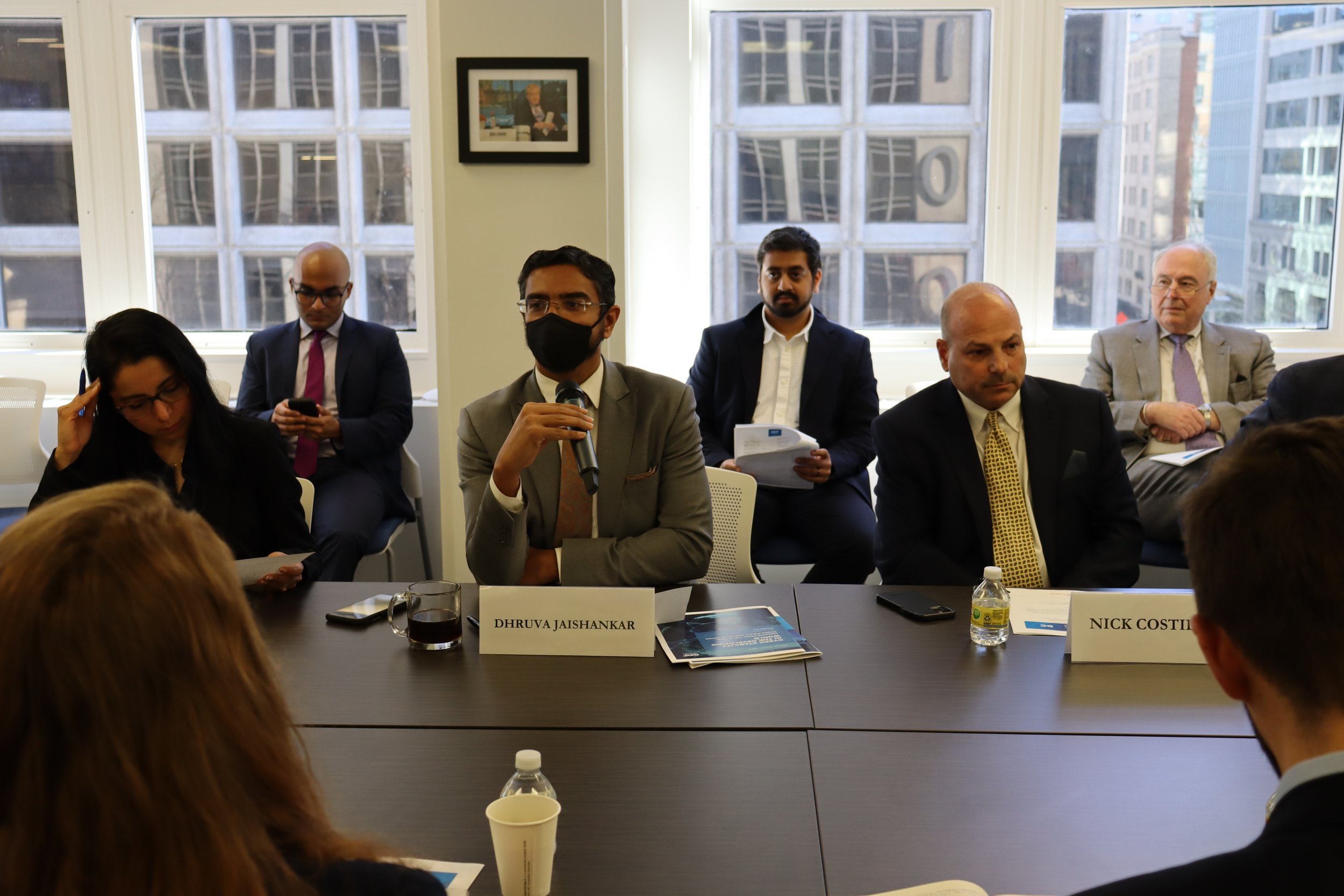
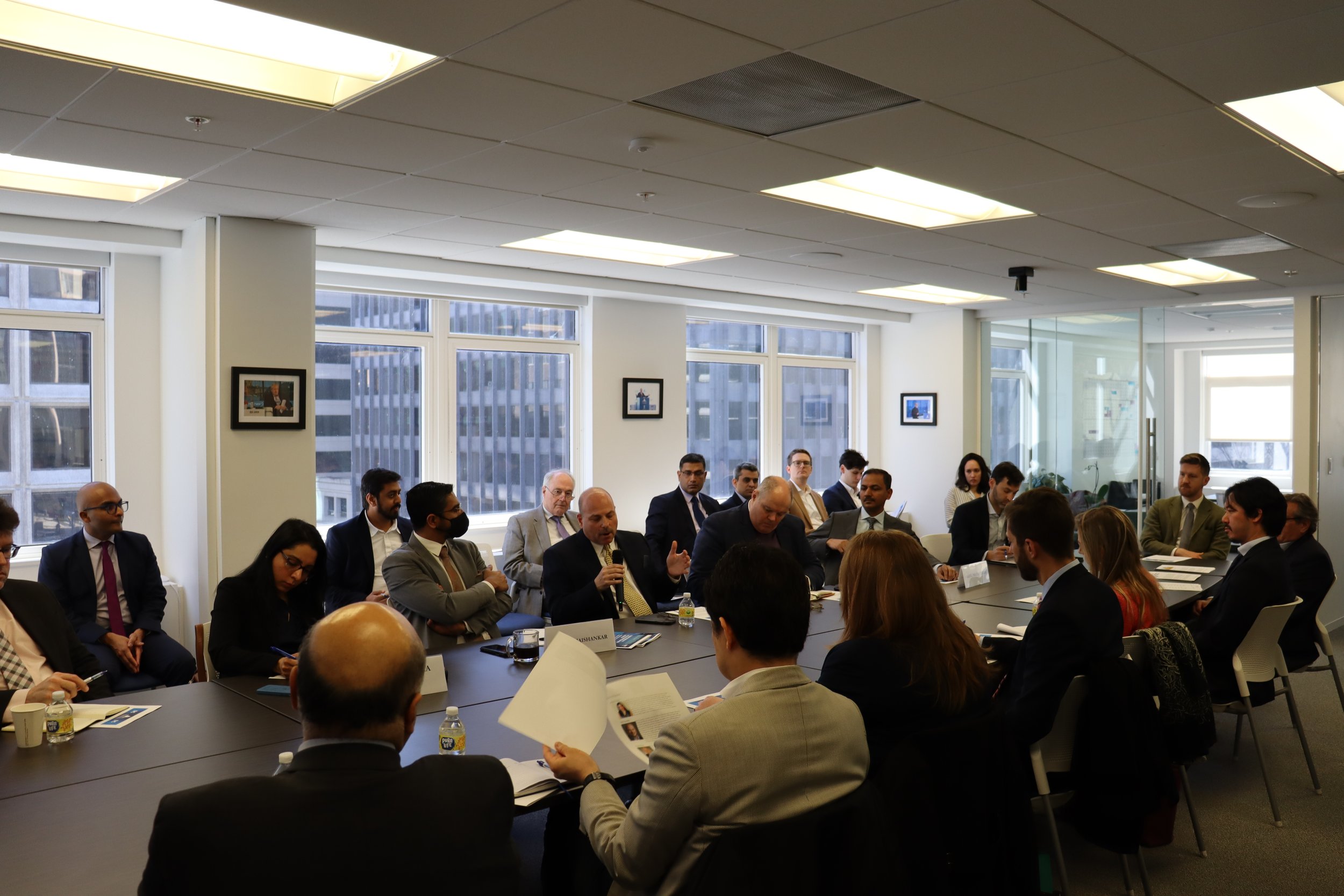
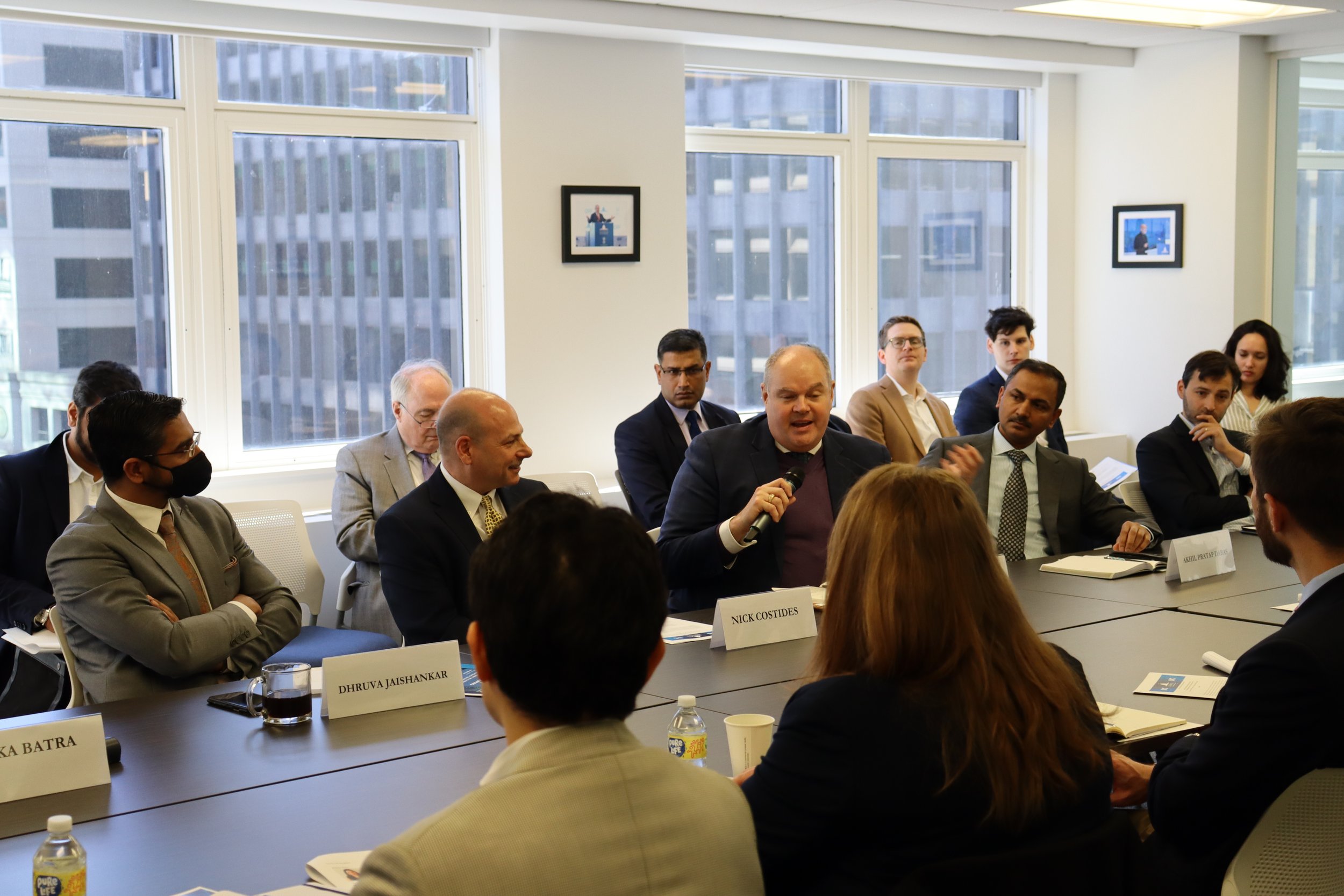
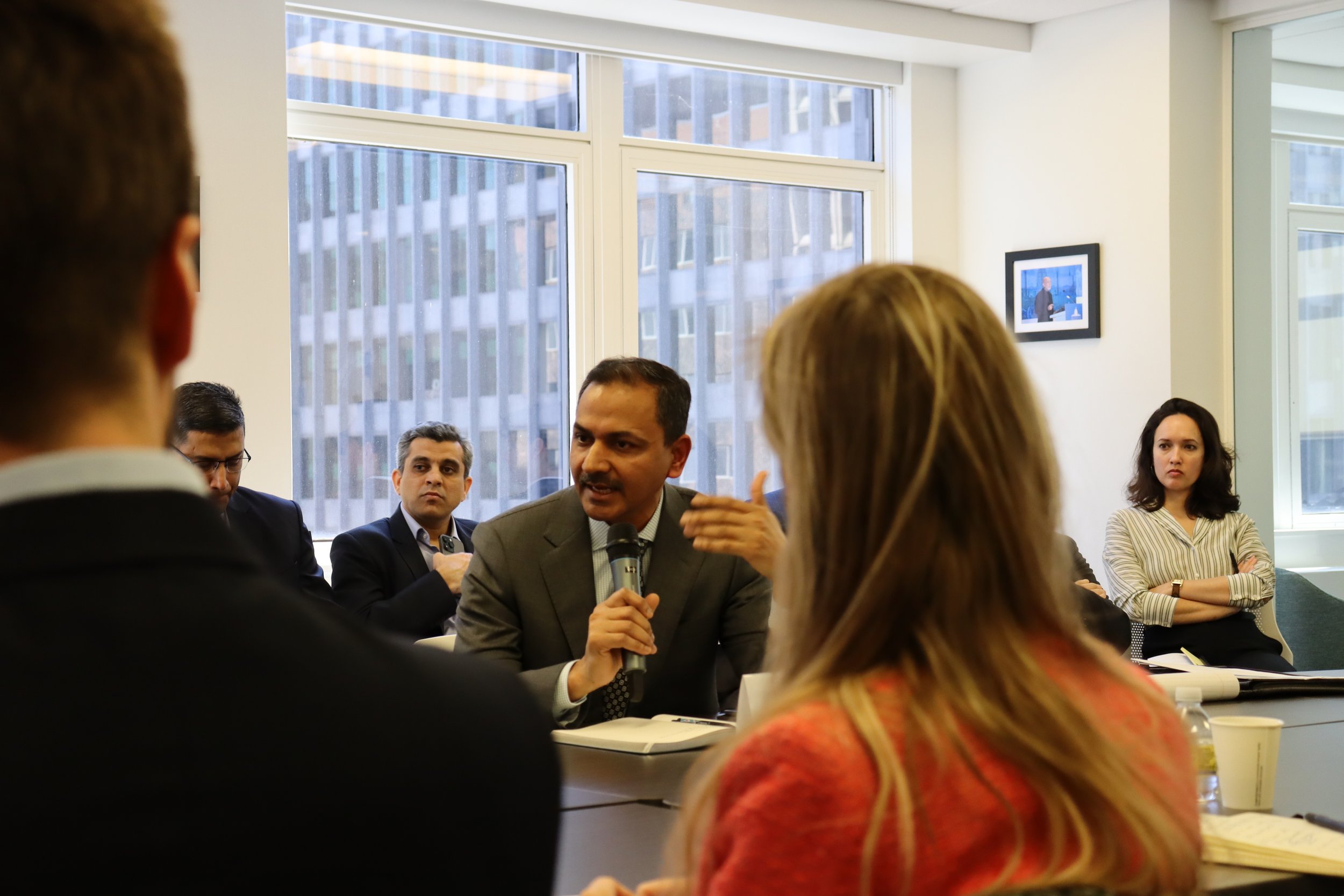
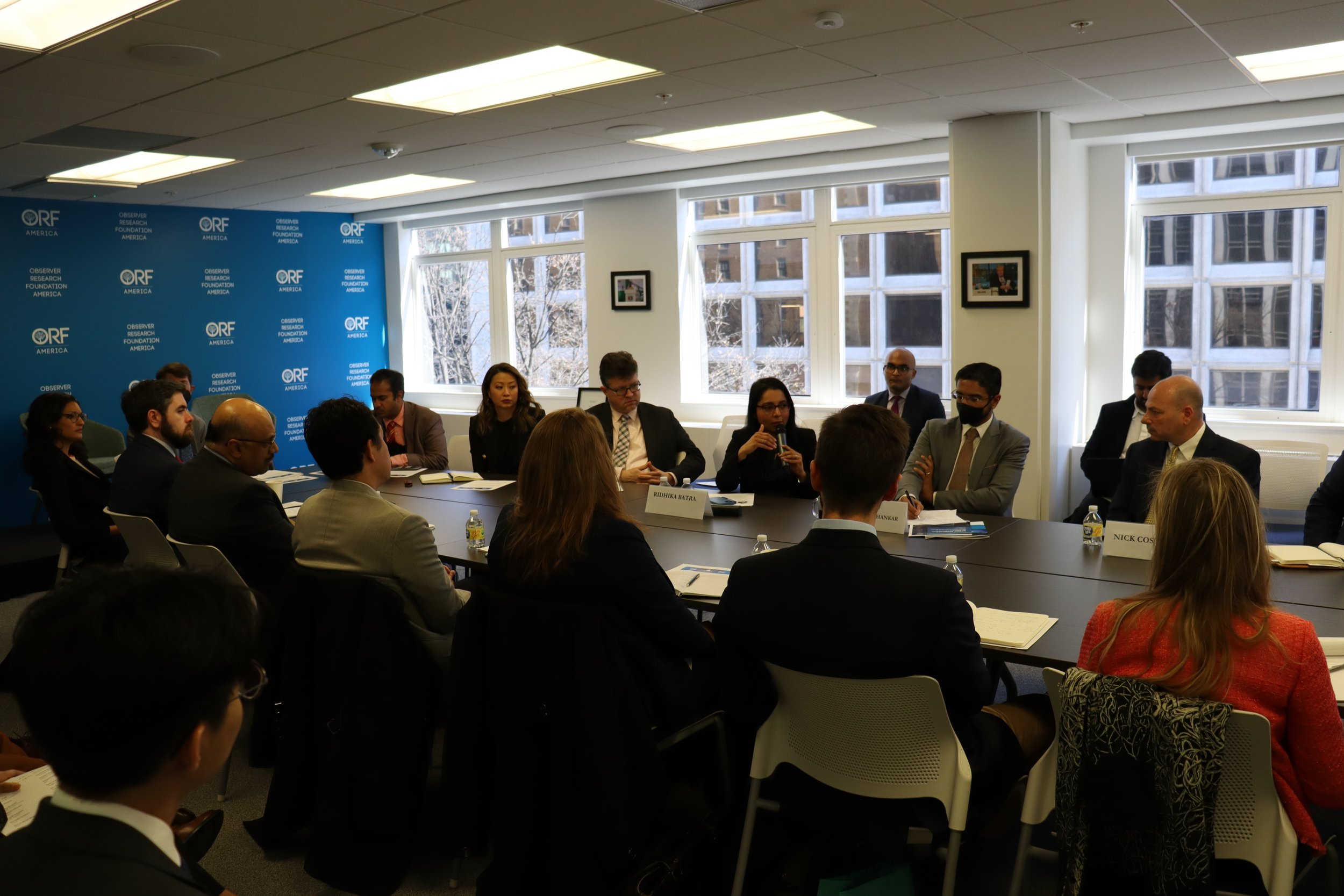
Background
As part of Raisina DC 2023, ORF America, along with Tech Mahindra, hosted a private roundtable (in-person) to facilitate a candid conversation about the future of global supply chains in the context of critical geopolitical developments with particular focus on the experience of business. Participants from the private sector, current and former U.S. and foreign government officials, think-tanks, and academic experts discussed different facets of this challenge.
Summary
Global supply chains across industry sectors are undergoing structural changes following the Covid-19 pandemic, geopolitical disruptions, and recent commodity price volatility, creating redundancies and alternatives to mitigate risk. Participants noted that efficiencies gained from U.S. firms going paperless, such as in logistics, are not always translated across borders when the customs and border protection agencies of most international trade partners remain paper based. Incorporating technology and digitalization into tracking processes for shipping and tracking has become key for leading firms, but for companies operating in high-value industries where components for products circle the globe multiple times in manufacturing this is fundamental. During the pandemic and subsequent semiconductor shortage, examples were provided where a lack of supply chain resiliency or redundancy was damaging for key automotive and appliance manufacturing companies. For leading companies, supplier diversification for manufacturing inputs takes years, as firms want to verify the capability of additional sources.
In many cases, national governments are providing incentives to re-shore, friend-shore, or “right-shore,” crucial elements of supply chains, while supply chain managers have begun to reconsider inventory management, scenario planning, and environmental sustainability with those factors in mind. Whether companies and consumers will be willing to absorb additional costs of products from a validated supply chain due to security concerns, remains an open question. Consumer education will play in a vital role in these areas. Past examples with diamonds and extractive industries focused on specific commodities or products, not entire supply chains.
Meanwhile, governments face challenges in determining what levers to pull for problem solving. In the United States, India, Europe, and East Asia participants shared that companies will continue to look to government for incentives to support their efforts because building manufacturing capacity for industries like aerospace, clean energy, and microelectronics is a massive, multiyear undertaking. Human talent development and acquisition of STEM workers, including in the fields of advanced engineering and logistics, is a key bottleneck in determining where and how supply chains and investments are routed. In the view of several participants, having universities co-located with manufacturing clusters will be essential going forward, as well as immigration policies allowing for the attraction of the best-trained workforce.

